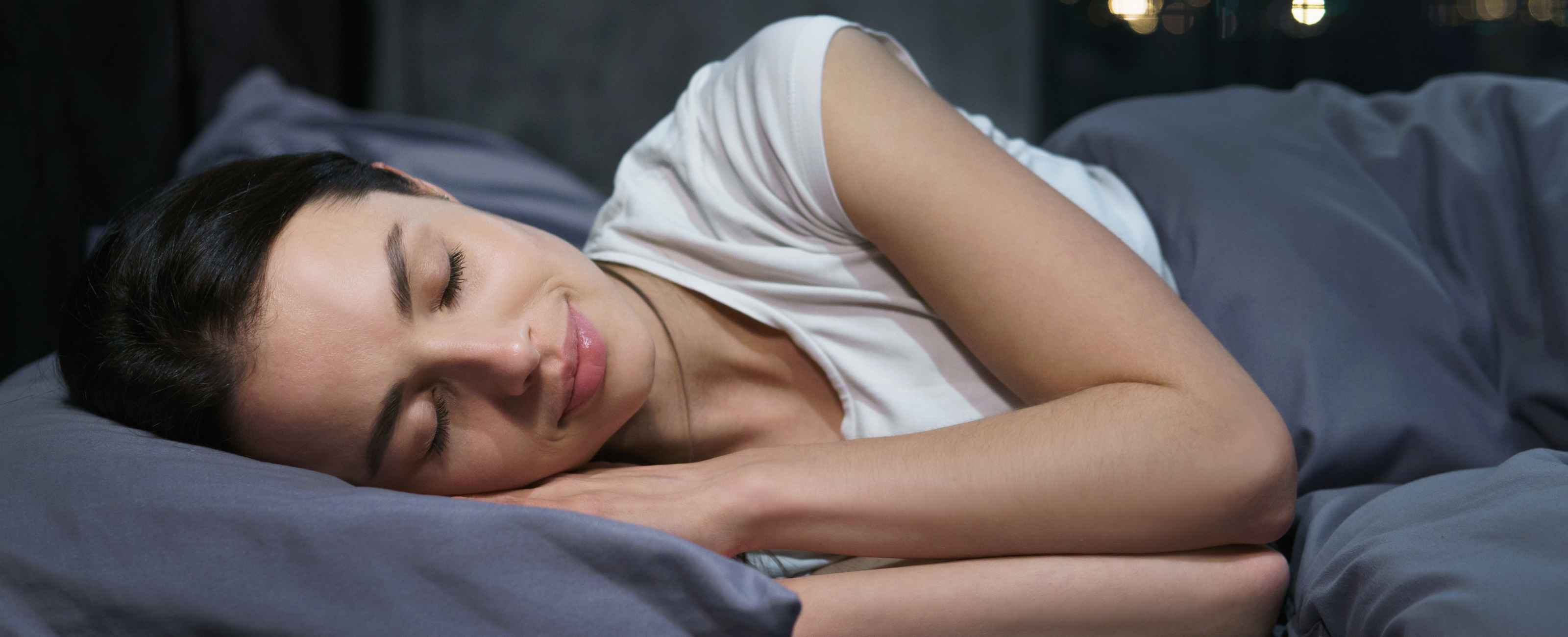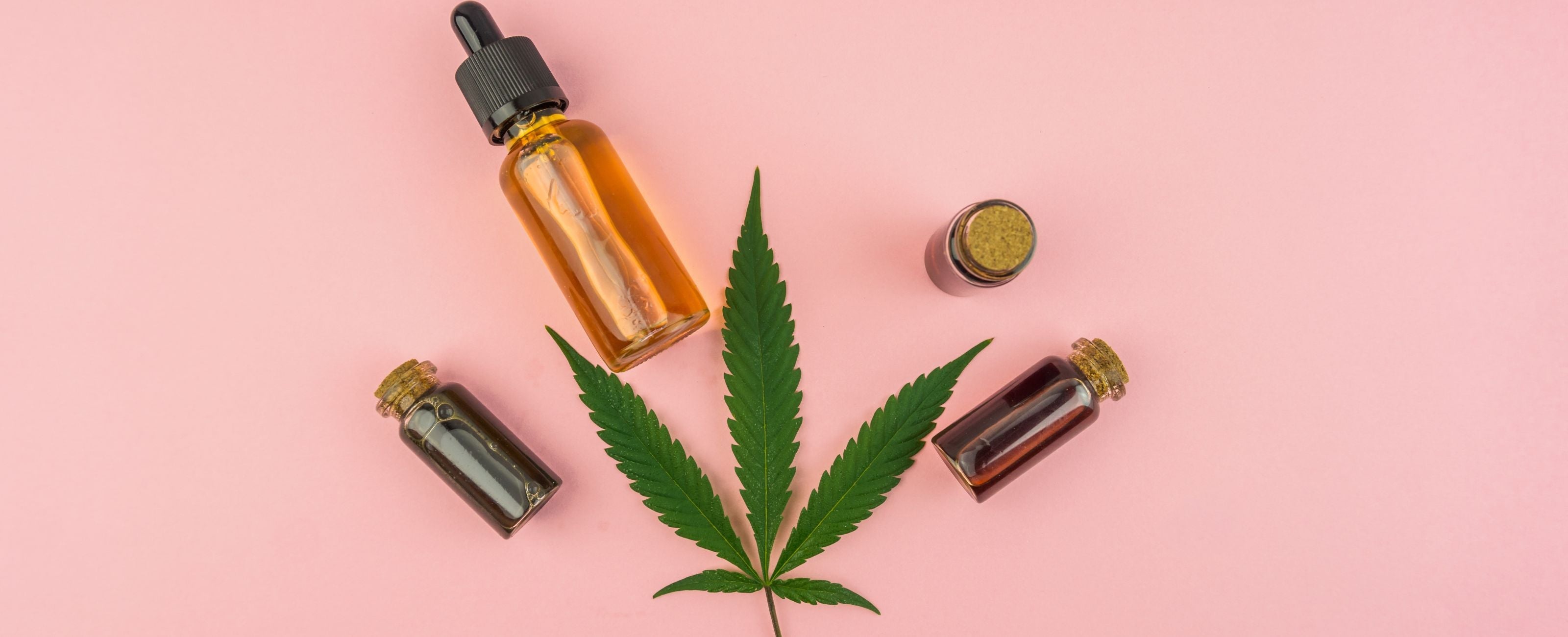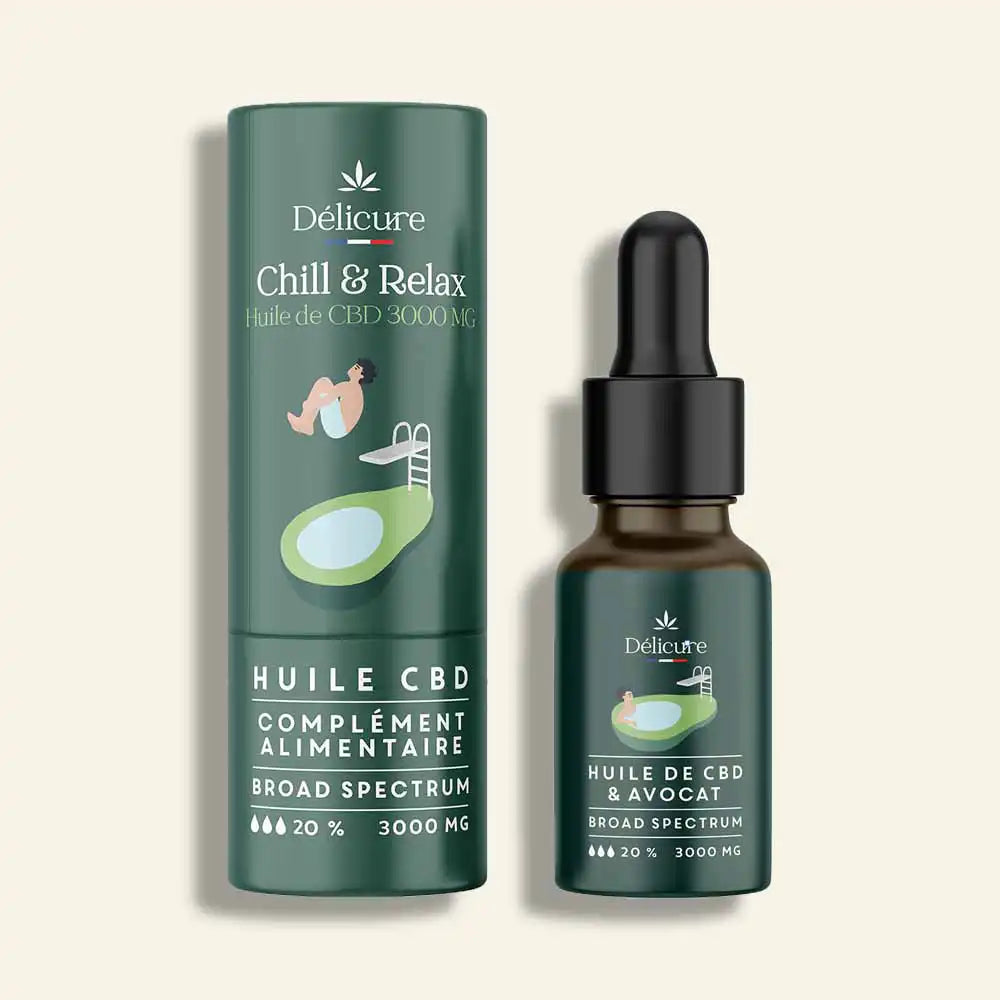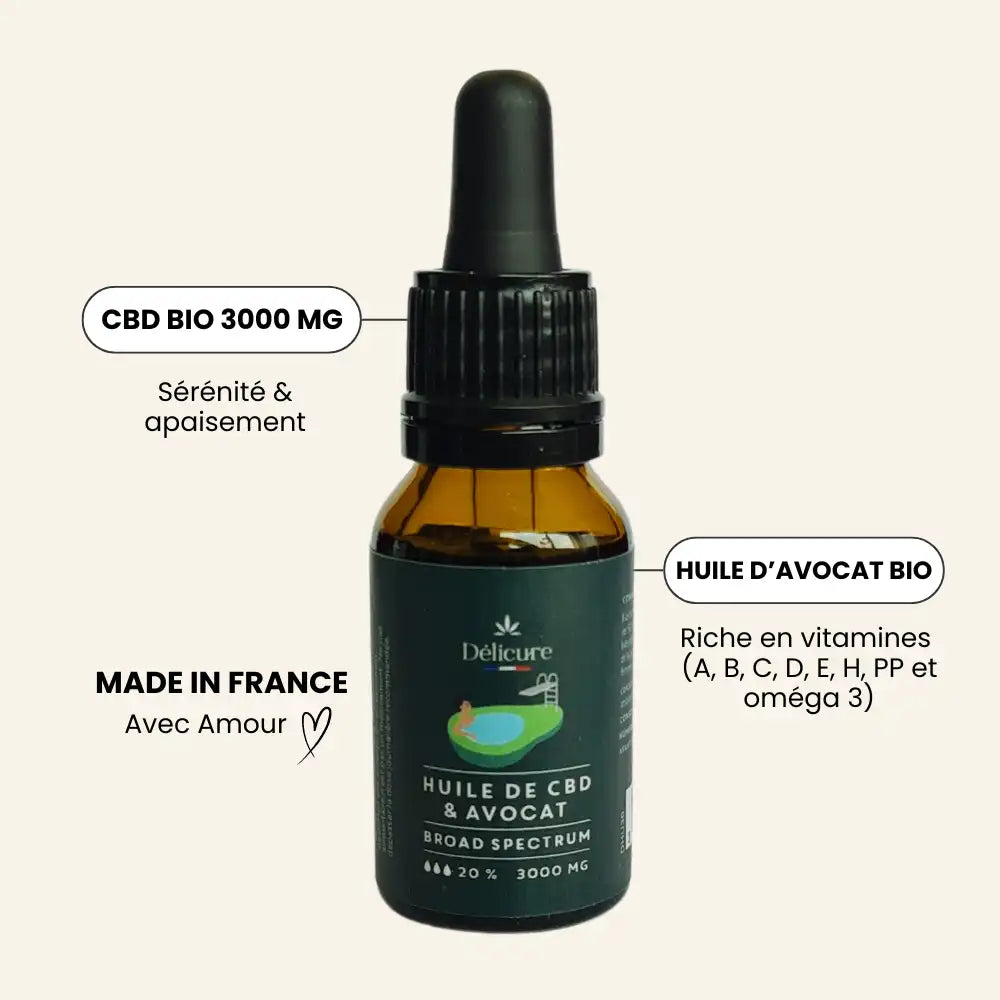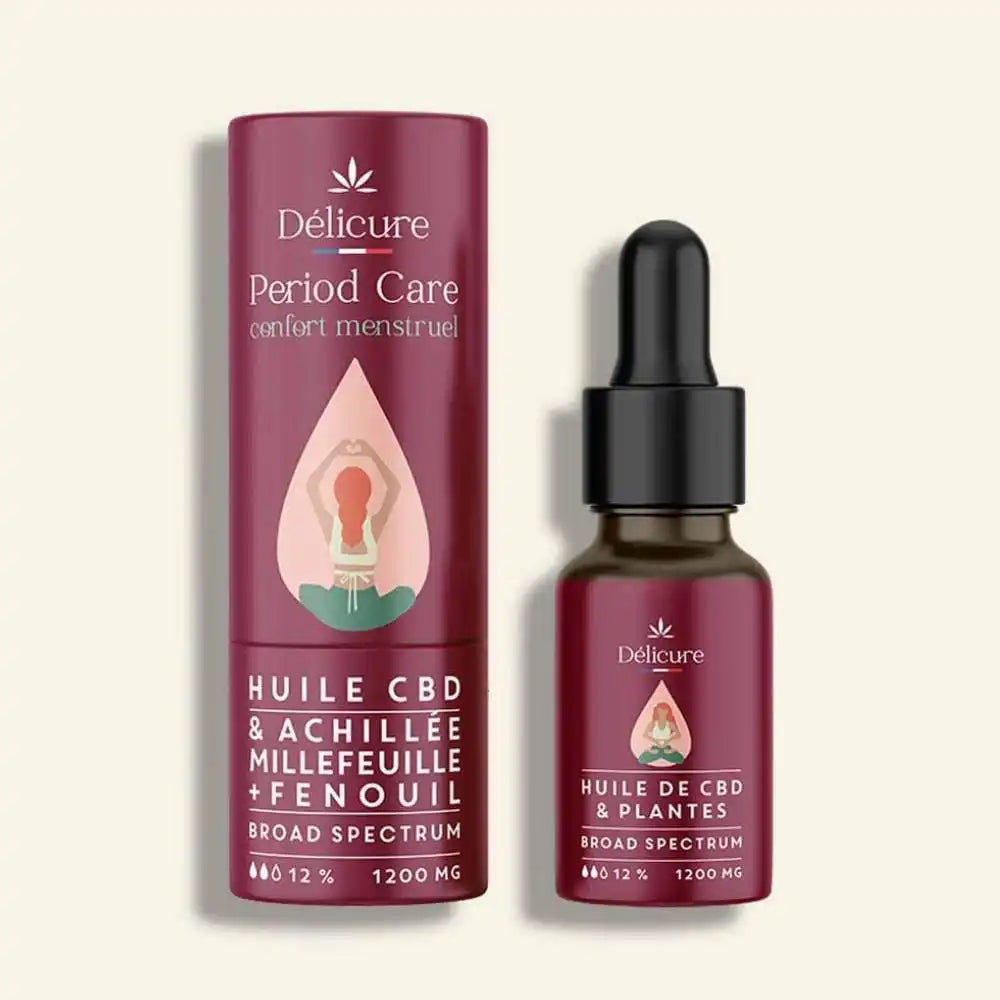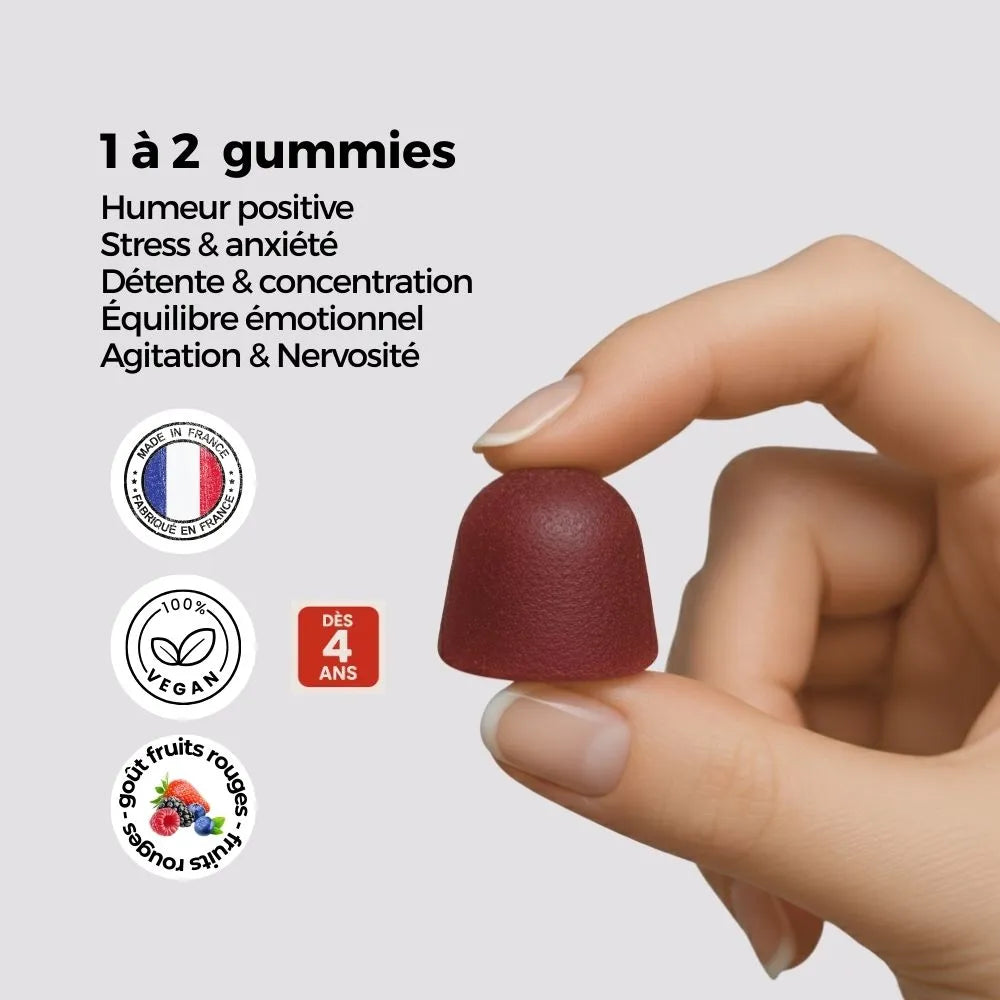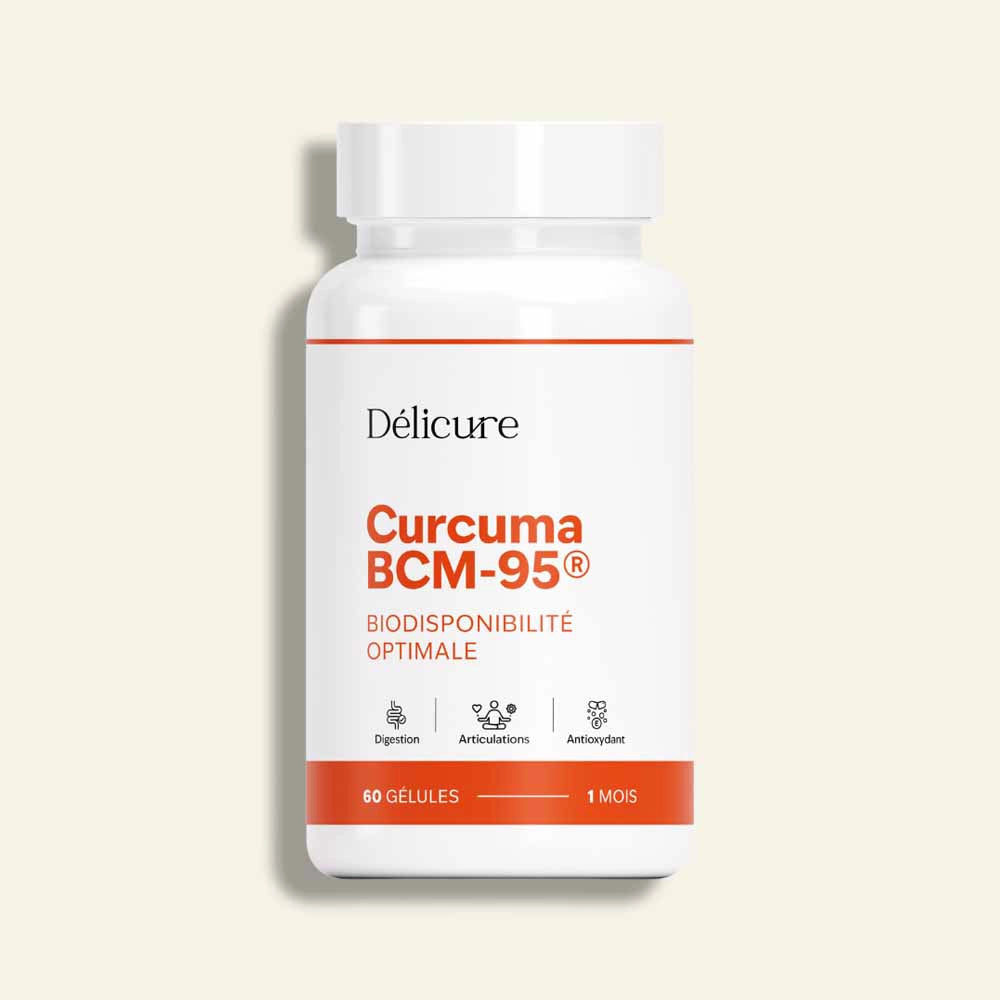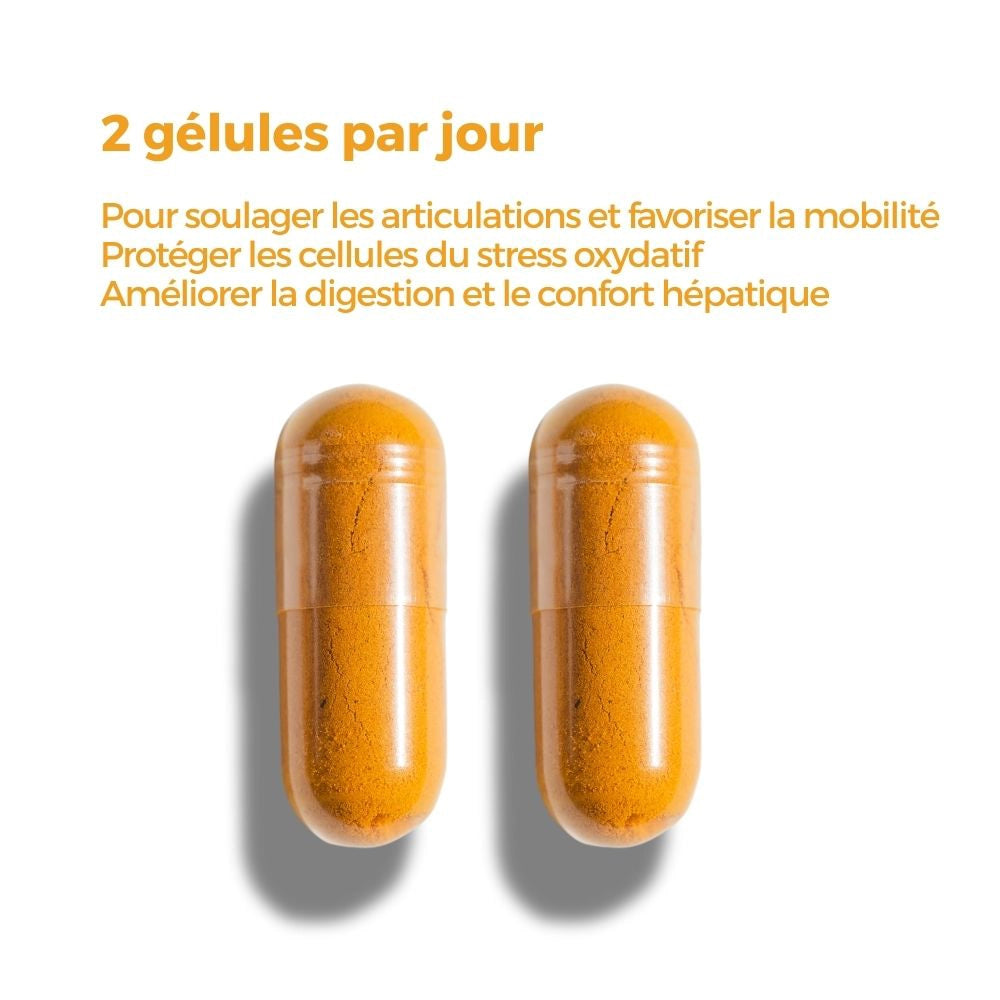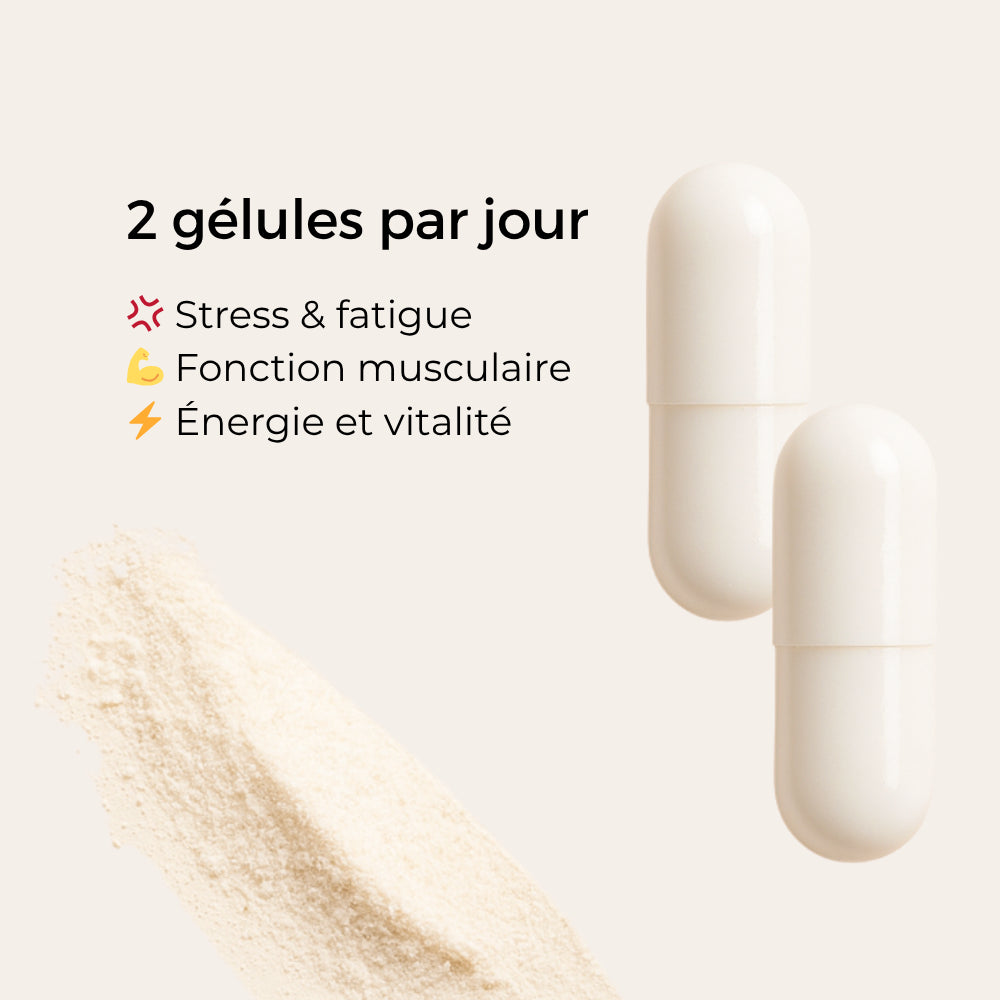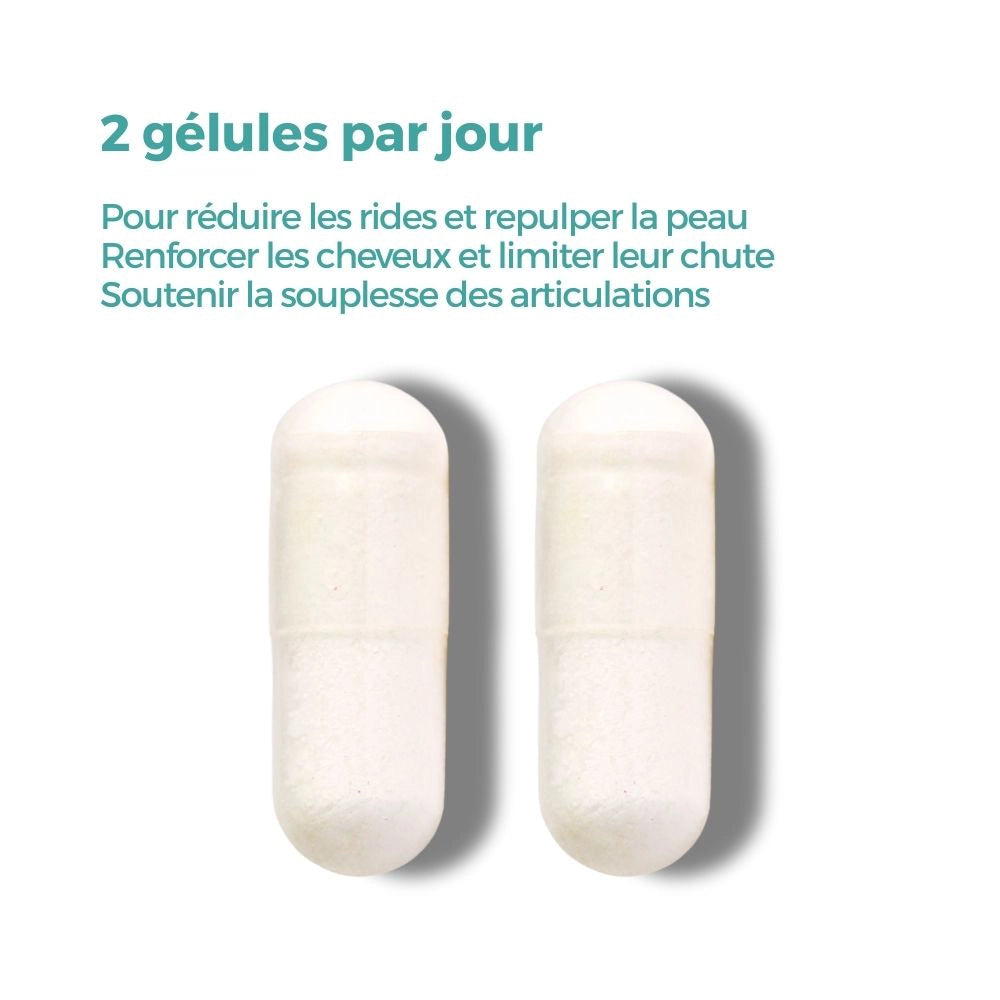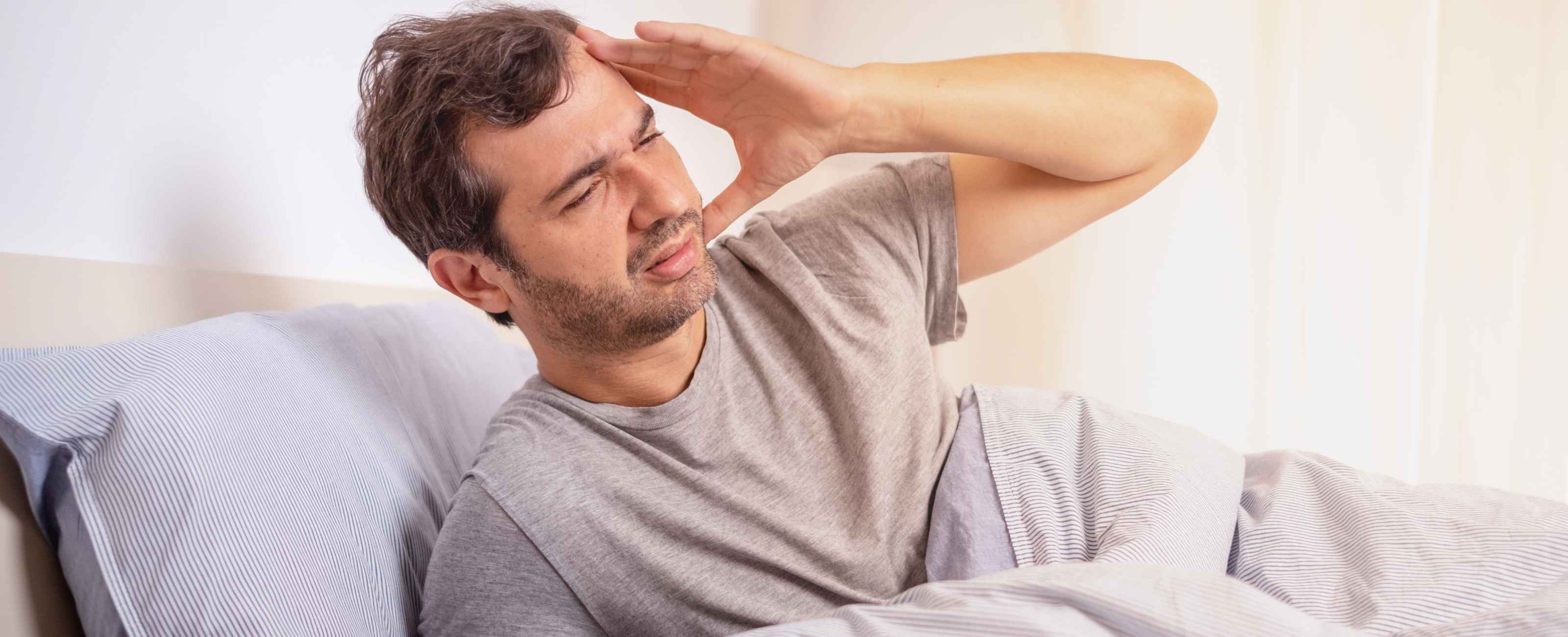
What are the links between stress and sleep disorders?
Do you toss and turn in bed, unable to fall asleep? Do you consistently wake up at 3 a.m., your mind filled with anxious thoughts? You're not alone. Millions of people suffer daily from stress-related sleep disorders, creating a vicious cycle that's particularly difficult to break.
Stress and sleep have a complex, two-way relationship: stress disrupts your sleep, and conversely, lack of sleep worsens your stress levels. This negative spiral can have serious consequences for your physical and mental health if left unaddressed.
In this comprehensive guide, discover why stress prevents sleep, how it affects your body, and above all, what natural solutions exist to regain restful nights and break this vicious cycle.
What is stress? A natural reaction or a health problem?
Stress: A Normal Physiological Reaction
Stress is fundamentally a natural bodily reaction, an ancestral survival mechanism that allows us to flee from or confront a particular situation. Imagine our ancestors facing a predator: their hearts raced, their muscles tensed, their minds became hyper-vigilant. This physiological reaction, encoded in our DNA, has allowed us to survive as a species.
Today, even though we no longer encounter saber-toothed tigers, our bodies react in the same way to modern challenges. In small amounts and for short periods, stress can even be beneficial: it helps us stay alert, focused, and perform well. This type of acute stress, sometimes called "good stress," affects all social groups and all age groups. It's what allows you to succeed in an important presentation or meet a tight deadline.
When Stress Becomes Chronic: Warning Signs
The problem arises when stress never stops. Chronic stress develops when your body remains in a constant state of alert, as if the tiger will never leave. This pathological condition requires serious attention. While chronic stress is not a disease in itself, it acts like a slow poison that can lead to serious health problems in the long run.
The first signs often appear insidiously. You might begin to experience persistent muscle contractions in your neck, shoulders, or back, as if you were carrying an invisible weight on your shoulders. Your digestive system rebels with recurring stomach aches, bloating, or bowel problems that appear without any apparent dietary cause. Your heart, too, feels this constant pressure with worrying palpitations or a gradually rising blood pressure.
The skin, this organ that reflects our inner state, can also sound the alarm. Skin rashes such as eczema, psoriasis, or stress acne appear or worsen. Migraines become more frequent, and dizziness and nausea strike unexpectedly. Intense and persistent fatigue sets in, the kind that even a good night's sleep can't dispel. Appetite becomes completely disrupted: some lose all desire to eat, while others develop compulsive eating to manage their emotions.
But perhaps the most insidious symptom remains sleep disturbances, which can gradually lead to chronic insomnia. And it is precisely there that the most difficult vicious cycle to break begins.
In the long term, if left unchecked, chronic stress opens the door to much more serious health problems. It promotes weight gain and obesity by disrupting appetite hormones, increases the risk of developing type 2 diabetes, weakens the cardiovascular system, and can lead to heart or kidney problems. On a mental level, it unfortunately paves the way for depression and burnout. Finally, it gradually weakens our immune defenses, making the body more vulnerable to infections and illnesses.
What is the link between stress and sleep disorders?
The link between stress and sleep resembles a vicious cycle where each partner drags the other down with them. There is a close, two-way relationship between these two aspects of our health: stress can cause sleep disturbances, and conversely, lack of sleep is itself a powerful stressor. It's a vicious circle that's particularly difficult to break, because each sleepless night fuels the stress of the following day, which in turn feeds the insomnia of the next night.
Why Does Stress Prevent Sleep?
The Role of Cortisol, the Stress Hormone
To understand why stress sabotages your sleep, we must first talk about cortisol, the hormone nicknamed the "stress hormone." In normal functioning, cortisol levels follow a precise rhythm throughout the day: they are high in the morning to help us wake up and face the day, then they gradually decrease over the hours to reach their lowest level in the evening, thus allowing us to fall asleep.
But when you're under chronic stress, this perfectly orchestrated hormonal dance descends into chaos. Cortisol levels remain abnormally high even at night, keeping your body in a constant state of alert. It's as if your body refuses to let its guard down, convinced that imminent danger lurks in the shadows. The result: even when physically exhausted, you remain mentally awake, unable to drift off to sleep.
The Overactive Mind
Beyond hormones, stress triggers a phenomenon many know all too well: the incessant stream of anxious thoughts that floods the mind the moment your head hits the pillow. Work worries replay endlessly, personal problems take on dramatic hues, and the anticipation of tomorrow generates paralyzing anxiety. This "mental chatter" prevents your brain from switching into rest mode, an essential condition for falling asleep. You analyze, plan, and worry, instead of simply letting go and surrendering to sleep.
Circadian Rhythm Disruption
Chronic stress also has a profound impact on your internal biological clock, the circadian rhythm that naturally regulates your sleep-wake cycles. When this clock is disrupted, your body no longer knows when it's supposed to be awake or asleep. Natural sleep signals weaken or arrive at the wrong time, leading to difficulty falling asleep and frequent nighttime awakenings that fragment your sleep.
Why Do I Wake Up Stressed at 3 AM?
If you recognize yourself in this specific scenario – consistently waking up between 2 and 4 a.m. with a knot of anxiety in your stomach – know that you are absolutely not alone. These nighttime awakenings are extremely common in cases of stress, and they have a clear physiological explanation.
At this time of night, your cortisol level should normally be at its absolute minimum. But in stressed individuals, it can spike suddenly, like an internal alarm going off for no apparent reason. This hormonal surge causes a sudden awakening accompanied by a feeling of generalized anxiety or, conversely, anxiety very focused on a particular worry.
Furthermore, it is precisely during REM sleep that our brain processes and integrates the emotions experienced during the day. In cases of significant stress, this phase can be disrupted or intensified, leading to frequent awakenings and fragmented sleep that no longer fulfills its restorative function. You may sleep for seven or eight hours, but you wake up just as tired as when you went to bed.
How does lack of sleep worsen stress?
Sleep is not a luxury or a waste of time; it is a vital function absolutely essential for the proper functioning of the body. While we sleep, our body maintains and regulates its essential functions, consolidates learning, repairs tissues, and strengthens the immune system. The duration and, above all, the quality of sleep play a crucial role in our physical and mental health. To better understand what really happens during your nights, it is important to know the different phases of sleep.
Insufficient or poor-quality sleep triggers a cascade of consequences that, paradoxically, exacerbate the initial stress. First, your ability to manage your emotions deteriorates considerably: you become more irritable, more reactive to setbacks, and less patient with those around you. Minor daily annoyances that wouldn't normally affect you become insurmountable mountains.
Then, your cognitive functions suffer seriously. Concentration becomes difficult, memory plays tricks on you, and mistakes multiply at work. And what do these mistakes do? They generate even more stress, of course. The chronic fatigue that sets in makes every task more difficult and stressful than it should be. Your immune system, weakened by lack of sleep, makes you fall ill more often, adding another layer of stress to your already complicated life.
The worst part? Lack of sleep stimulates the production of cortisol, that infamous stress hormone. Your body remains in a state of constant alert, ready to react to threats that don't always exist. The vicious cycle is complete: stress prevents sleep, lack of sleep increases stress, which in turn prevents even more sleep.
What is Stress-Related Insomnia?
Definition and Symptoms of Insomnia
Insomnia is much more than just a temporary difficulty sleeping. It's a sleep disorder characterized by a lack of restorative sleep that manifests itself in several distinct ways. Perhaps you consistently take more than 30 minutes to fall asleep, tossing and turning as the minutes tick by. Or you fall asleep normally, but wake up several times during the night, with the frustrating difficulty of falling back asleep quickly. Some people experience waking up too early in the morning—waking up at 4 or 5 a.m. with no possibility of falling back asleep.
Perhaps the worst part is that feeling of unrefreshing sleep: you've slept your seven or eight hours, but you wake up feeling profoundly tired, as if you hadn't slept at all. It's that feeling of having a body and mind that have never truly rested.
The Consequences of Insomnia on Your Daily Life
Insomnia is never confined to your nights. It invades your days with excessive daytime sleepiness that makes you want to nod off in the middle of a meeting or while driving. Your mood becomes unstable, oscillating between irritability and unpredictable mood swings that can damage your personal and professional relationships.
At work, the consequences are quickly felt. Difficulties concentrating and remembering things sabotage your professional performance. You reread the same paragraph several times without retaining its content, you forget important appointments, and you struggle to make even simple decisions. The risk of accidents, whether at work or on the road, increases significantly when your alertness is impaired by lack of sleep.
What are the other causes of sleep disorders?
Stress is obviously not the only possible cause of sleep disorders, even if it remains one of the most frequent factors. Certain respiratory illnesses, such as asthma or COPD, can disrupt sleep by making breathing difficult during the night. Chronic pain related to conditions like osteoarthritis, rheumatoid arthritis, or certain cancers makes it difficult to find a comfortable sleeping position.
Allergies, especially allergic rhinitis, can turn your nights into a nightmare with a constantly blocked nose. Consuming stimulants like caffeine (especially after 4 p.m.), tobacco, or energy drinks keeps your nervous system alert. Alcohol, contrary to popular belief, seriously disrupts sleep quality, even if it initially helps you fall asleep. Eating a heavy meal before bed puts a strain on your digestive system when it should be resting.
Psychological disorders such as depression or anxiety disorders also have a major impact on sleep. Finally, sleep apnea , characterized by repeated pauses in breathing during the night, fragments sleep without you necessarily being aware of it.
The Risks of Chronic Sleep Deprivation
Neglecting sleep problems is never without consequences. In the long term, chronic sleep deprivation can trigger or worsen serious health problems. The risk of developing heart disease and suffering strokes increases significantly. Type 2 diabetes becomes more likely because lack of sleep disrupts blood glucose regulation.
Obesity is also exacerbated by the disruption of hunger and satiety hormones that accompanies sleep deprivation. On a mental level, depression and anxiety find fertile ground in chronic insomnia, once again creating this vicious cycle where the disorders feed off each other.

Natural Solutions: How to Reduce Stress to Sleep Better?
Herbal Medicine: Natural Healing
Fortunately, nature offers us gentle and effective solutions to soothe stress and restore sleep. The World Health Organization even recognizes herbal medicine as a fully-fledged form of conventional medicine. This therapeutic approach uses medicinal plants to improve overall health, representing a valuable alternative to chemical medications such as antidepressants, anxiolytics, or psychotropic drugs, which can lead to harmful side effects and long-term dependence.
Several medicinal plants have scientifically demonstrated their anti-stress and sedative properties. Rhodiola, for example, is a remarkable adaptogenic plant that helps the body adapt to stress and maintain its balance in the face of external aggressions. Hawthorn effectively soothes the nervous system and calms heart palpitations related to anxiety. Passionflower promotes deep relaxation and facilitates natural sleep. St. John's wort, meanwhile, supports emotional balance, although caution is advised as it can interact with certain medications.
Other plants, such as linden, offer a calming and mildly sedative effect, perfect for an evening herbal tea. Chamomile, used since antiquity, has widely recognized relaxing properties. Valerian, finally, significantly improves sleep quality by acting on neurotransmitters in the brain.
Natural Dietary Supplements
For those who don't particularly enjoy the taste of herbal teas or who are looking for a more convenient solution, organic and natural dietary supplements are an excellent alternative. Available in various forms – capsules, tablets, ampoules, or gummies – these products made from adaptogenic plants help soothe daily anxiety and promote better sleep.
Délicure offers a range of 100% French vegan food supplements in the form of gummies—small, fruity gummies that are easy and enjoyable to eat. The "Stress" range helps combat stress and relax the body thanks to its patented saffron extract and vitamin B6. These gummies are particularly effective at calming the mind before bedtime, creating the ideal conditions for a peaceful sleep.
The "Sleep" range, meanwhile, concentrates a powerful synergy of relaxing plants such as passionflower, linden, and poppy petal, enriched with vitamins B5 and B6, as well as melatonin, the well-known sleep hormone. Taking two gummies about 30 minutes before bedtime makes it easier to fall asleep , promotes relaxation, and allows you to have a truly restorative night's sleep.
CBD , this natural molecule derived from the hemp plant, also deserves special mention. It promotes relaxation without the psychoactive effects of THC and is now widely used by people seeking natural well-being. Délicure offers a complete range of organic CBD oils tailored to various needs – whether for sleep, stress management, pain relief, or women's health issues – as well as a range of relaxing cannabidiol treats .
The advantage of these supplements? They are much easier to ingest than traditional capsules or sometimes bulky tablets, and above all, they do not cause addiction or undesirable side effects when used correctly.
Essential Oils to Calm Stress
Beyond herbal infusions or supplements, essential oils offer a particularly effective aromatic approach. Fine lavender essential oil is probably the best known for its calming properties. Roman chamomile and sweet marjoram also help soothe anxiety and combat insomnia. Their therapeutic properties are widely recognized in the health field, with varied applications—digestive, circulatory, antiviral, anti-inflammatory—that allow them to treat minor everyday ailments.
To enjoy their benefits, it's very simple: when stress symptoms appear, breathe deeply the essential oil of your choice for several minutes, or place a few drops on your pillow before going to bed. Inhalation allows for a rapid action on the nervous system, creating an almost instant calming effect.
Evening Routine: How to Calm Your Mind Before Sleeping?
Things to Avoid Before Bedtime
Creating the conditions for a good night's sleep often begins with eliminating what disrupts it. Intense physical activity, while beneficial for overall health, should be avoided in the 2-3 hours before bedtime. Exercise raises body temperature and stimulates alertness, making it harder to fall asleep. Instead, opt for exercise in the morning or early afternoon.
Evening meals also deserve special attention. A heavy dinner puts a strain on your digestive system when it should be resting, disrupting sleep quality. Stimulants are your enemies after 4 p.m.: caffeine, found not only in coffee but also in tea, chocolate, and some sodas, can remain in your system for 6 to 8 hours. Tobacco and alcohol, often used to "relax," actually disrupt sleep cycles.
Finally, screen time before bed is probably the number one sleep saboteur of our modern age. The blue light emitted by our smartphones, tablets, and computers inhibits the production of melatonin, the hormone that signals to our bodies that it's time to sleep. Try turning off all your screens at least an hour before bedtime.
Good Habits to Adopt
Once you've eliminated the obstacles, it's time to actively create an environment and rituals conducive to sleep. Your bedroom should be a sanctuary of sleep: quiet, away from outside noise, and plunged into darkness thanks to blackout curtains that block out all unwanted light. The ideal temperature is between 16 and 19°C – a cool room really does promote sleep , even if it seems counterintuitive.
Relaxation activities should become your new best friends. Meditation, even just 10 minutes a day, deeply calms the mind. Yoga, with its gentle postures and stretches, releases accumulated physical tension. Breathing exercises like heart coherence or the 4-7-8 technique instantly calm the nervous system. Reading, provided it's a physical book and not a bright screen, prepares the mind for sleep. Listening to soft music or guided meditations creates an atmosphere conducive to relaxation.
Diet also plays a crucial role. A balanced diet, rich in vitamins and minerals, helps your body better manage stress. Favor foods rich in magnesium, such as almonds, dark chocolate (in moderation), and green vegetables. Sources of tryptophan—the precursor to serotonin found in bananas, nuts, and eggs—promote the production of feel-good hormones. Omega-3 fatty acids, present in oily fish and nuts, as well as the B vitamins in whole grains and legumes, support nervous system balance.
Finally, establishing a consistent bedtime routine sends powerful signals to your brain. Stick to regular bedtimes and wake-up times, even on weekends. Your body needs this regularity to regulate its biological clock. Create a calming sequence 30 to 60 minutes before bed: turn off screens, dim the lights, have a relaxing herbal tea or your sleep gummies, practice a few minutes of breathing or meditation, and then read a few pages of a book. This routine quickly becomes an automatic signal for your brain: it's time to sleep.
Breathing Exercises: What to Do to Calm Your Thoughts?
The 4-7-8 Breathing Method: Express Stress Relief Technique
Developed by Dr. Andrew Weil, this breathing technique is remarkably effective at quickly calming anxiety and preparing the body for sleep. Its principle is simple yet powerful: inhale gently through your nose while counting to 4, hold your breath for 7 seconds, then exhale slowly through your mouth while counting to 8. Repeat this cycle at least 4 times. This sequence slows your heart rate, lowers blood pressure, and activates your parasympathetic nervous system—the one that helps you relax.
Cardiac Coherence
If you could only adopt one stress-relieving practice, this would probably be it. Heart coherence, practiced three times a day (morning, noon, and evening), profoundly regulates your nervous system. The principle? Breathe at a rate of 6 breaths per minute for 5 minutes: 5 seconds of inhalation, 5 seconds of exhalation. This regularity creates harmony between your heart and brain, significantly reducing cortisol levels in your body.
The Body Scan
Lying comfortably in bed, this technique involves mentally scanning each part of your body, from head to toe, consciously releasing any areas of tension you identify. Start with your forehead and jaw, then move down to your shoulders, arms, stomach, legs, and finally your toes. This practice helps you let go both mentally and physically, creating the ideal conditions for drifting naturally off to sleep.
When to Consult a Healthcare Professional?
Despite your best efforts and the application of natural remedies, sometimes chronic stress or severe insomnia requires professional intervention. There's no shame in asking for help—it's actually a sign of wisdom and taking responsible care of your health.
Certain signs should alert you and prompt you to seek medical help quickly. If your insomnia persists for more than three weeks despite your efforts, if lack of sleep severely impacts your ability to function on a daily basis, if you develop depressive thoughts or paralyzing anxiety that prevents you from living normally, or if you experience worrying physical symptoms such as chest pain or severe palpitations, it is time to consult a doctor.
A healthcare professional can guide you towards solutions tailored to your situation: cognitive behavioral therapy (CBT) specifically designed for insomnia, psychological support to learn to manage stress differently, supervised and personalized relaxation techniques, or, if really necessary, temporary drug treatment to break the cycle and allow you to recover.
Conclusion: Breaking the Vicious Cycle of Stress and Insomnia
The link between stress and sleep disorders is real, complex, but certainly not irreversible. Understanding the biological and psychological mechanisms that connect these two issues is the essential first step to regaining control of your nights and, by extension, your days.
Remember that there is no single miracle solution. Everyone is different, and what works for one person may not work in exactly the same way for another. The important thing is to experiment, gradually adopting the habits that resonate with you: a soothing and regular evening routine, an optimized sleep environment, relaxation techniques such as breathing exercises or meditation, natural solutions based on herbs or dietary supplements, good overall lifestyle habits, and the willingness to consult a professional if the problems persist.
Breaking the vicious cycle of stress and insomnia takes time, patience, and self-compassion. You won't resolve years of sleep problems in a week. But every small improvement counts and brings you closer to truly restorative sleep. Each slightly better night reduces your stress level a little, which in turn promotes even better sleep the following night. The vicious cycle can become a virtuous one.
Don't wait any longer to take care of your sleep: it's the cornerstone of your physical and mental health. Natural, effective solutions without side effects exist to help you achieve peaceful nights and a more balanced daily life. Your body and mind will thank you for this investment in your well-being.







